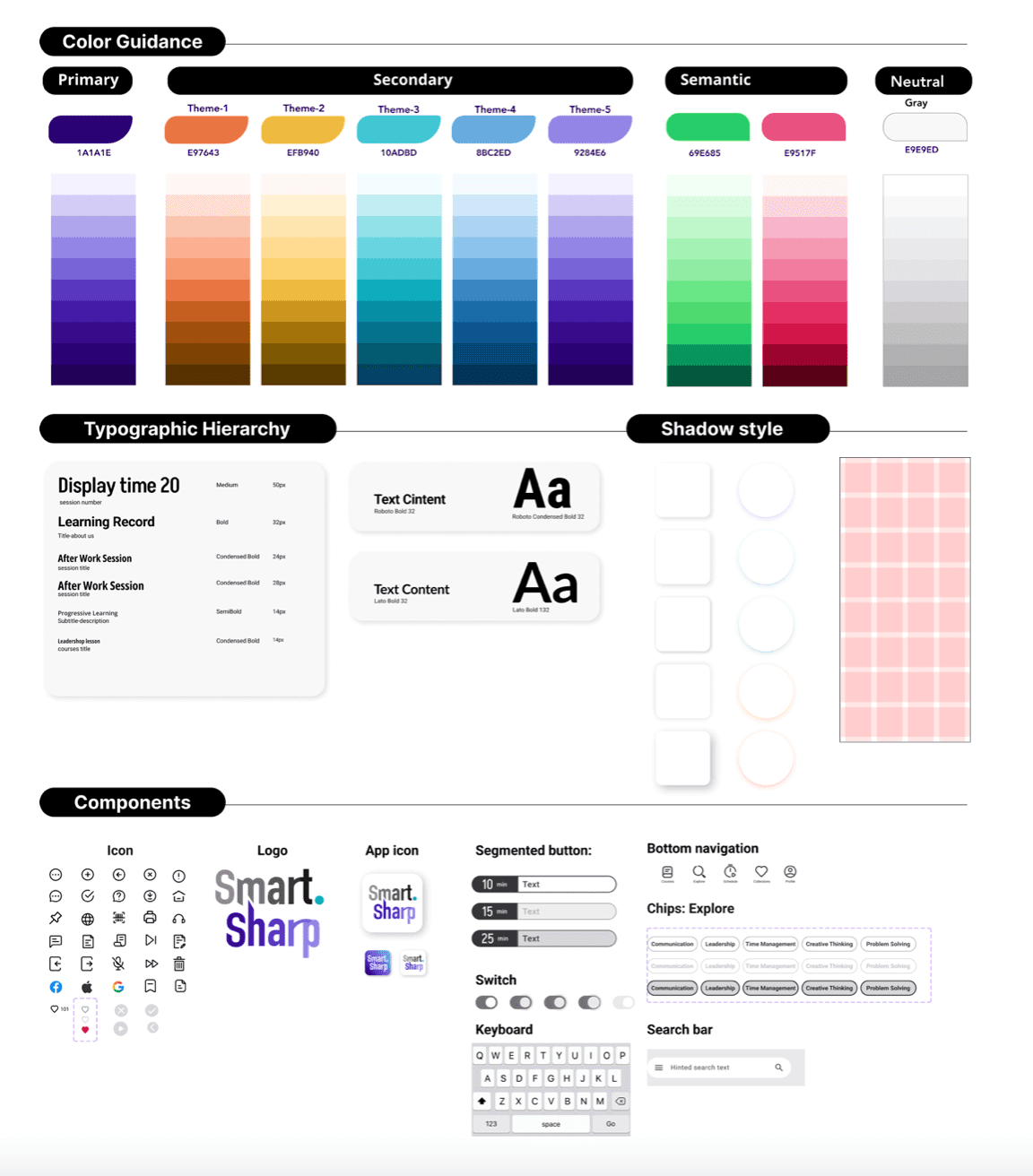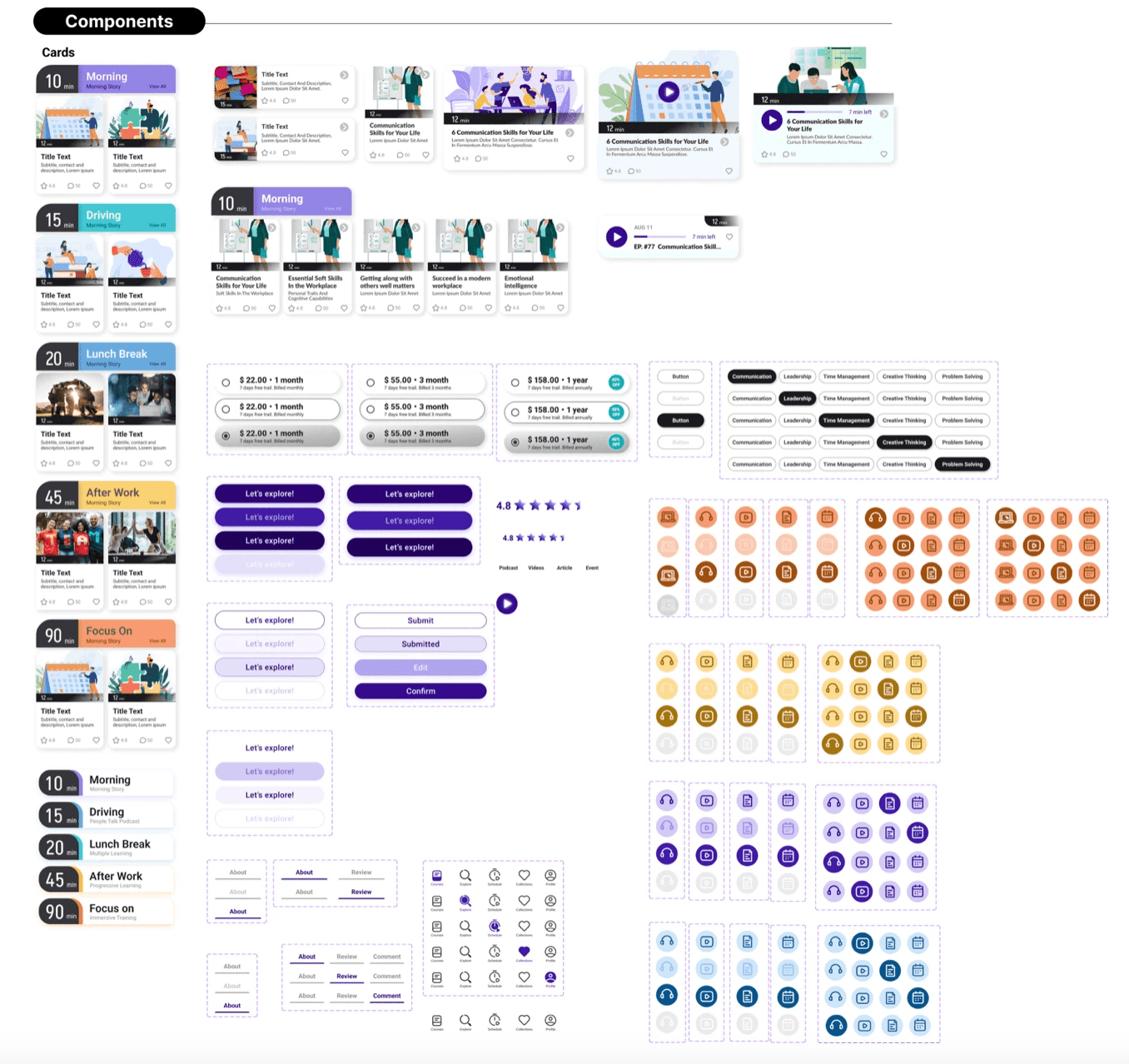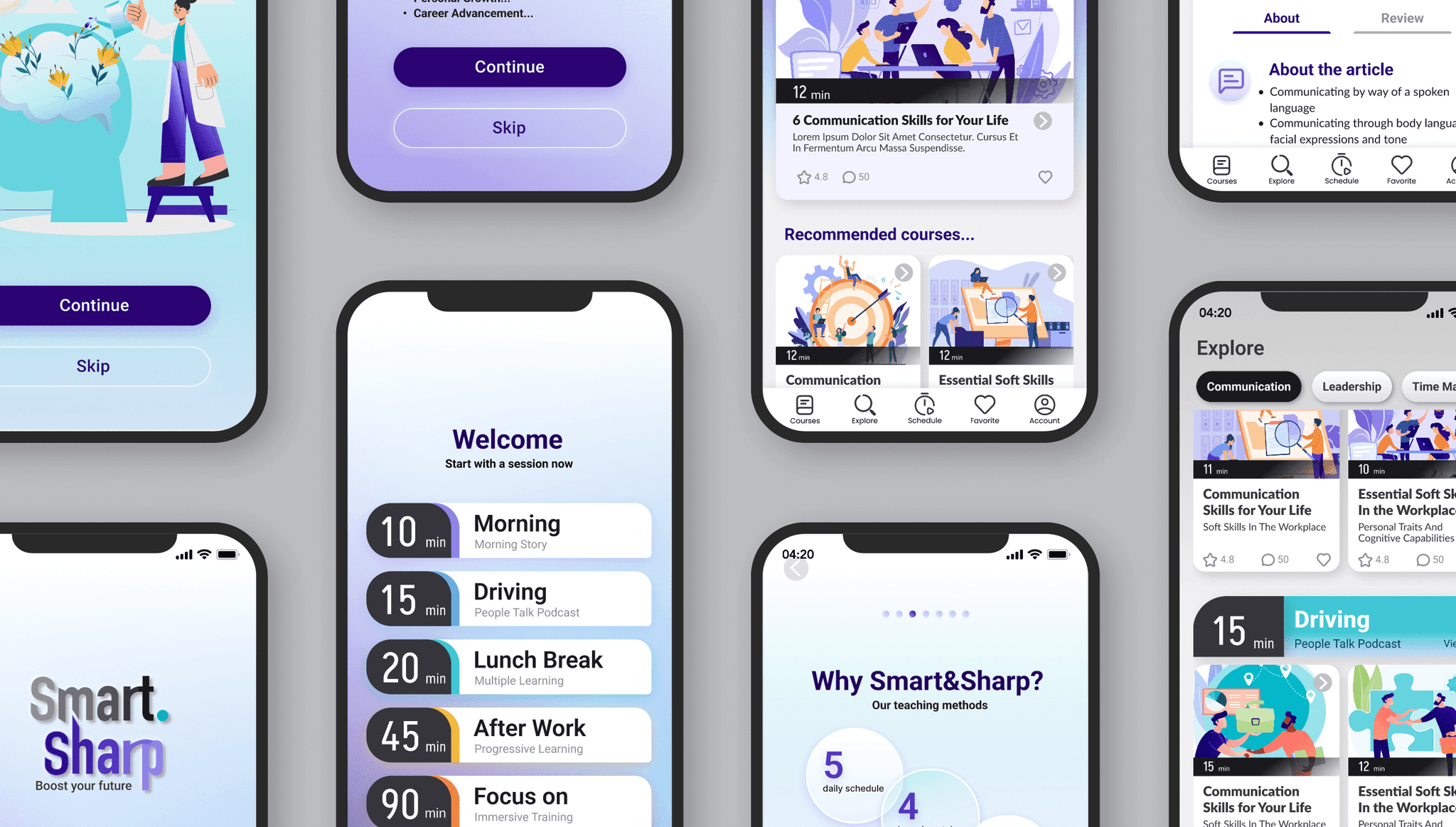
Professionals enhance soft skills in daily life by choosing a time and method to learn their desired subjects effectively.
My Responsibilities
Design Thinking (Teamwork)
Applied UX Design (Personal)
Interactive Visual Design (Personal)
Tools Used
Figjam. Figma
Keynote
Adobe Illustrator
Team
Damon Hines
Matthew Zabel
Jenfeng Wu
Caroline Clark
Duration
March 29~August 30, 2023
6 months
Overview
We have observed social and emotional intelligence importance in career advancement. For example, understanding people's underlying motivations, anticipating their needs, and forming a collaborative relationship with
coworkers are skills often learned through time-consuming personal trial and error.
How might we help professionals understand their blind spots and quickly learn and apply soft skills intended for career growth?
Problem
Proposed Solutions
1.Morale and productivity are low
Ongoing conflicts and miscommunication in the workplace are creating a stressful situation for professionals. That result in a low productive environment.
2.Distinct soft skills are needed
Early-career professionals need better soft skills to achieve their goals and get promotion.
Experienced Professionals need soft skills improve work performance and lead their team move forward.
3.Daily schedule are busy
The professionals are determined to strengthen these skills and are seeking relevant courses that can accommodate their busy schedule.
1.Track and motivate users’ learning
By tracking professionals’ learning process that ultimately help them enhance their soft skills and advance in their careers progressively.
2.Provide multiple courses
Provide professionals with a platform for improving their soft skills through distinct courses with immersive learning methods.
3.Offer a flexible learning experience
Professionals can engage in the courses during different parts of their day. The app intends to cater to professionals' varying schedules and preferences.
Providing a flexible and immersive learning app for improved soft skills can enable professionals to connect wisely with colleagues and teams. Furthermore, this can lead to salary increases and professional advancement.
User Research
My teammates and I conducted 16 interviews
We want to know all the details of using soft skill experiences from the interviewers, so we collaborated as a team to compile the questions into a questionnaire. Each of us interviewed 4 people for more than 60 minutes. We recorded the conversation, transcribed the main points, analyzed the data, and discussed the different key findings.
We focus on these questions:
First-hand of experiences
Thoughts / Feelings
What they need
Goals / Improvements
How did they solve the problem / issue / Actions
What are the Consequences
Rewards / Incentives
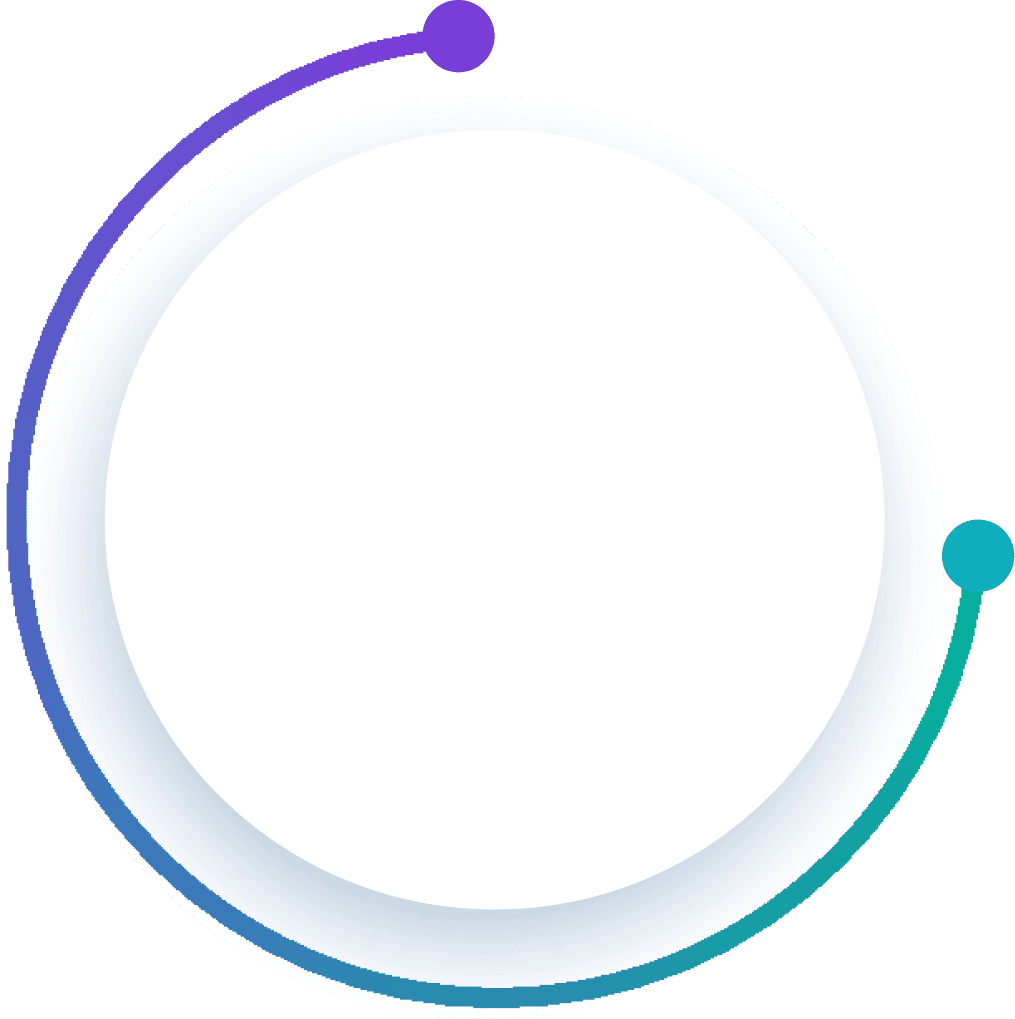
16
Interviews

35+
Following up Questions
The more following questions, the more insights.
“They can be learned from education.” “Coaching is the best way to maintain your soft skills.”
Amr
“They can be learned from education.” “Coaching is the best way to maintain your soft skills.”
Amr
“Communication definitely would be at the top of my list. Listening would be the first step of it. I guess I put problem solving second, but attention to detail has always been a really important one to me.”
Giles
“The term soft skills means to me is pretty much being able to walk into a room and interact with people on all walks of life.”
Ian
“They can be learned from education.” “Coaching is the best way to maintain your soft skills.”
Amr
Our Key findings
Identification
Know the exact missing soft skills
Limited Time
Need to fit people’s daily schedule
Practice
Explore the best way to practice soft skills
Personal Gain
Reach a personal goal and get promotion
Feelings
Show sympathy with others
Getting Closer to User-Centered Design
Early-career professionals and experienced professionals share similar issues in lacking soft skills at work. However, there are also distinct skills needed for enhancement. We prioritize understanding their pain points and filtering potential functions to provide viewing choices.
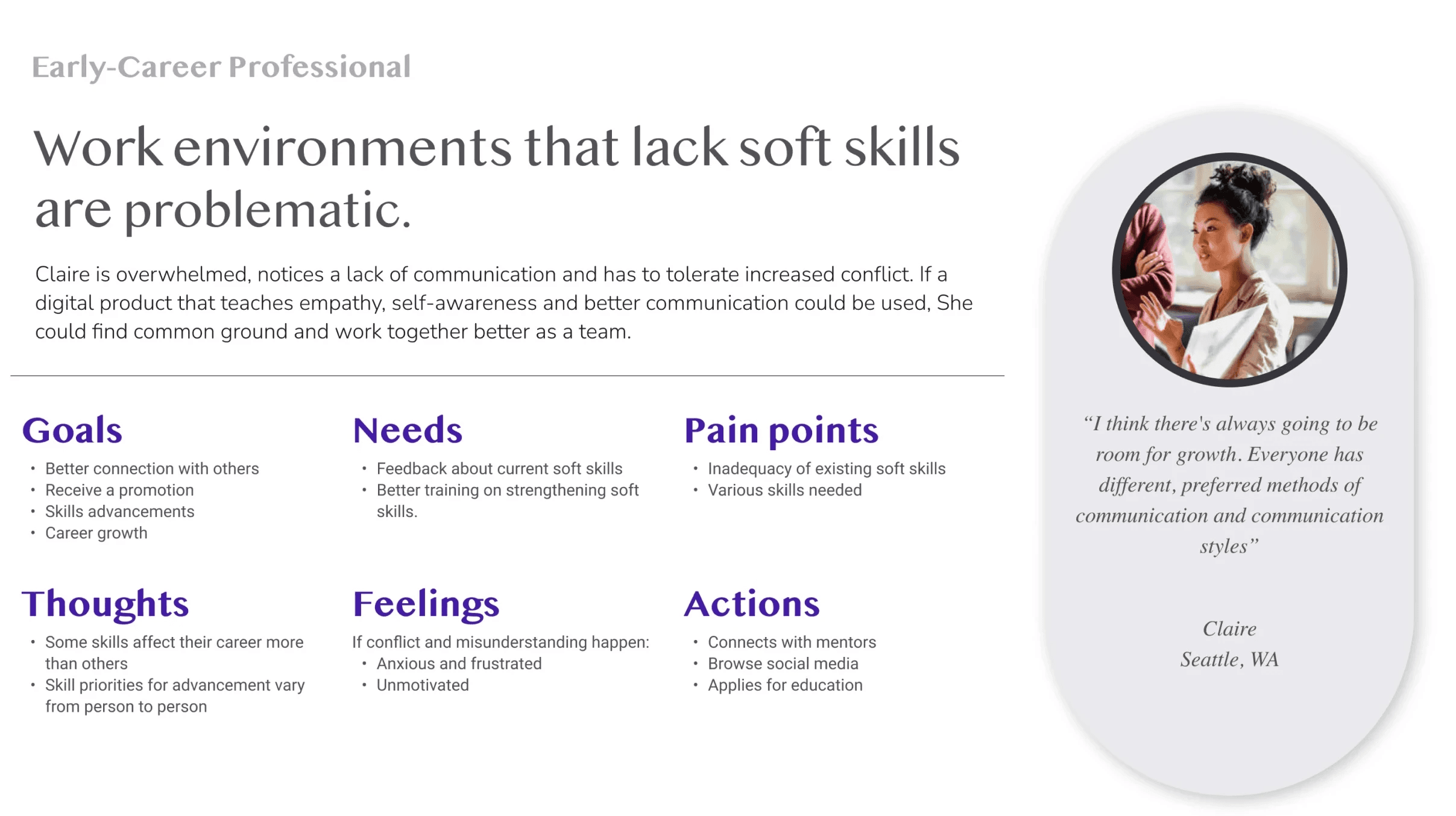
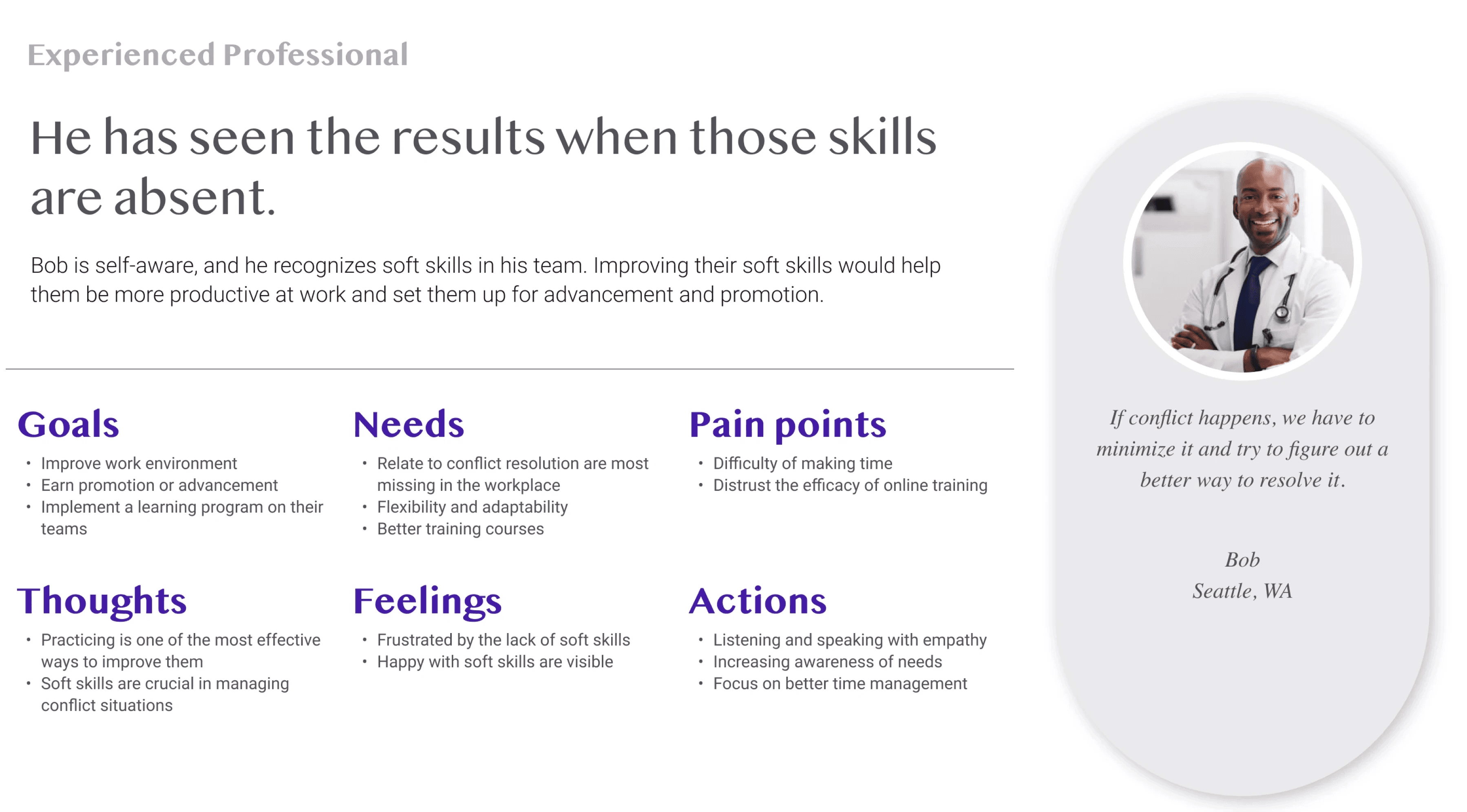
Dive deeper into potential solutions:
"How Might We” matrix and Ideation workshop
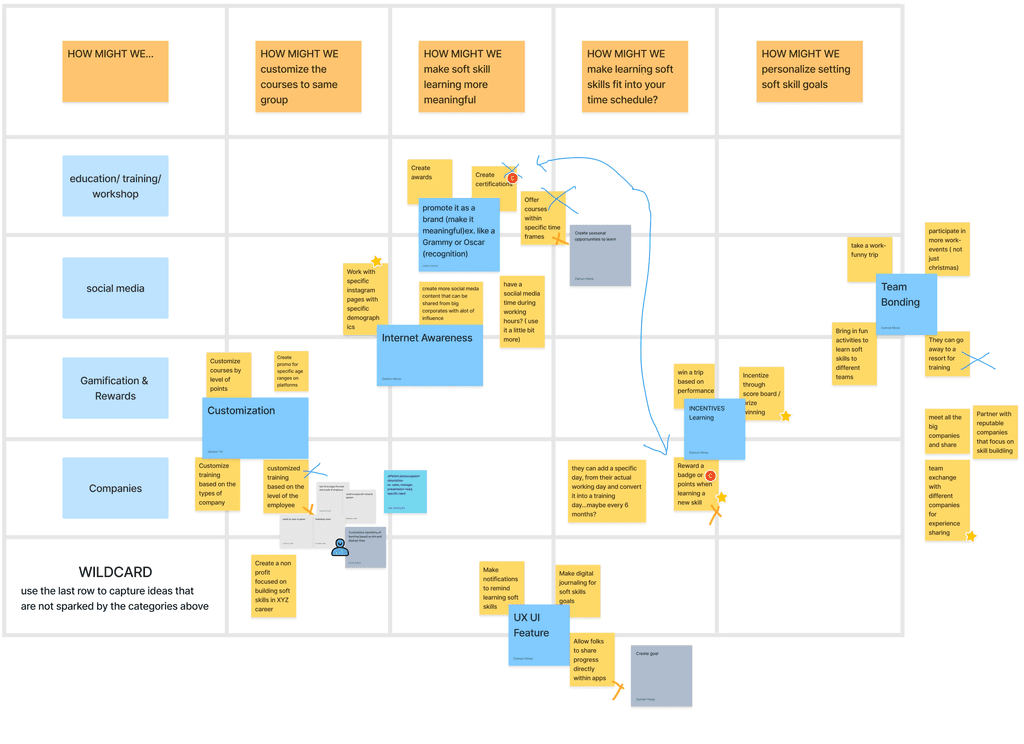
We try our best to create HMW questions and ask for more ideas and solutions.
We grouped those ideas into categories and voted as a group on our four favorites.
We each picked an idea or group of ideas and developed concepts around them.
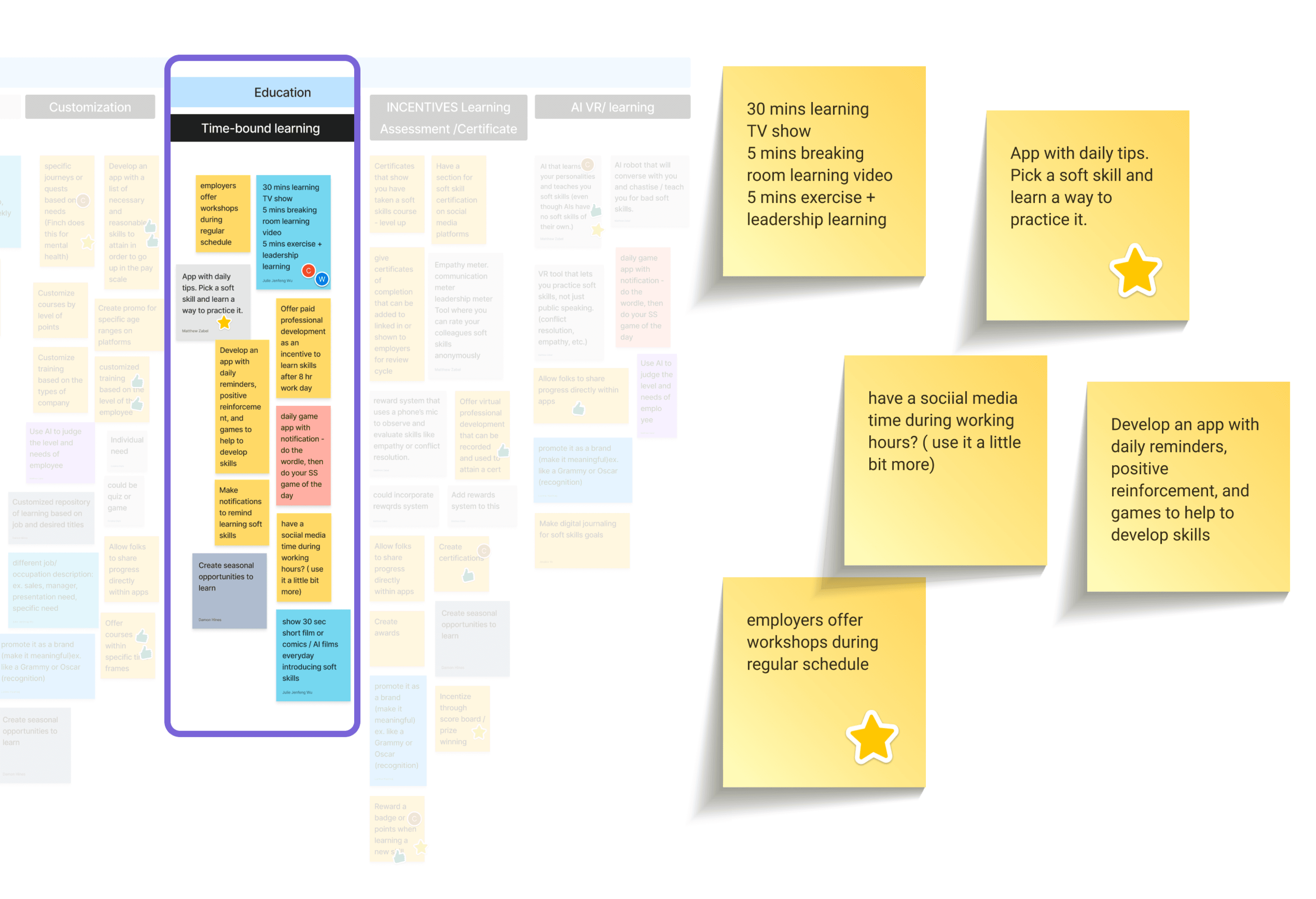

Aiding professionals in immersing themselves in efficient learning is crucial through ideation and the generation of potential solutions.
Start to create the structure: The Site Map
Utilize hierarchical tables to build the framework and map out the overall structure of the app.
Establish the main functions that align with users' needs.
Define the priority of the pages.
Strategize the connections between the pages.
Review and enhance the consistency and usability for the users.
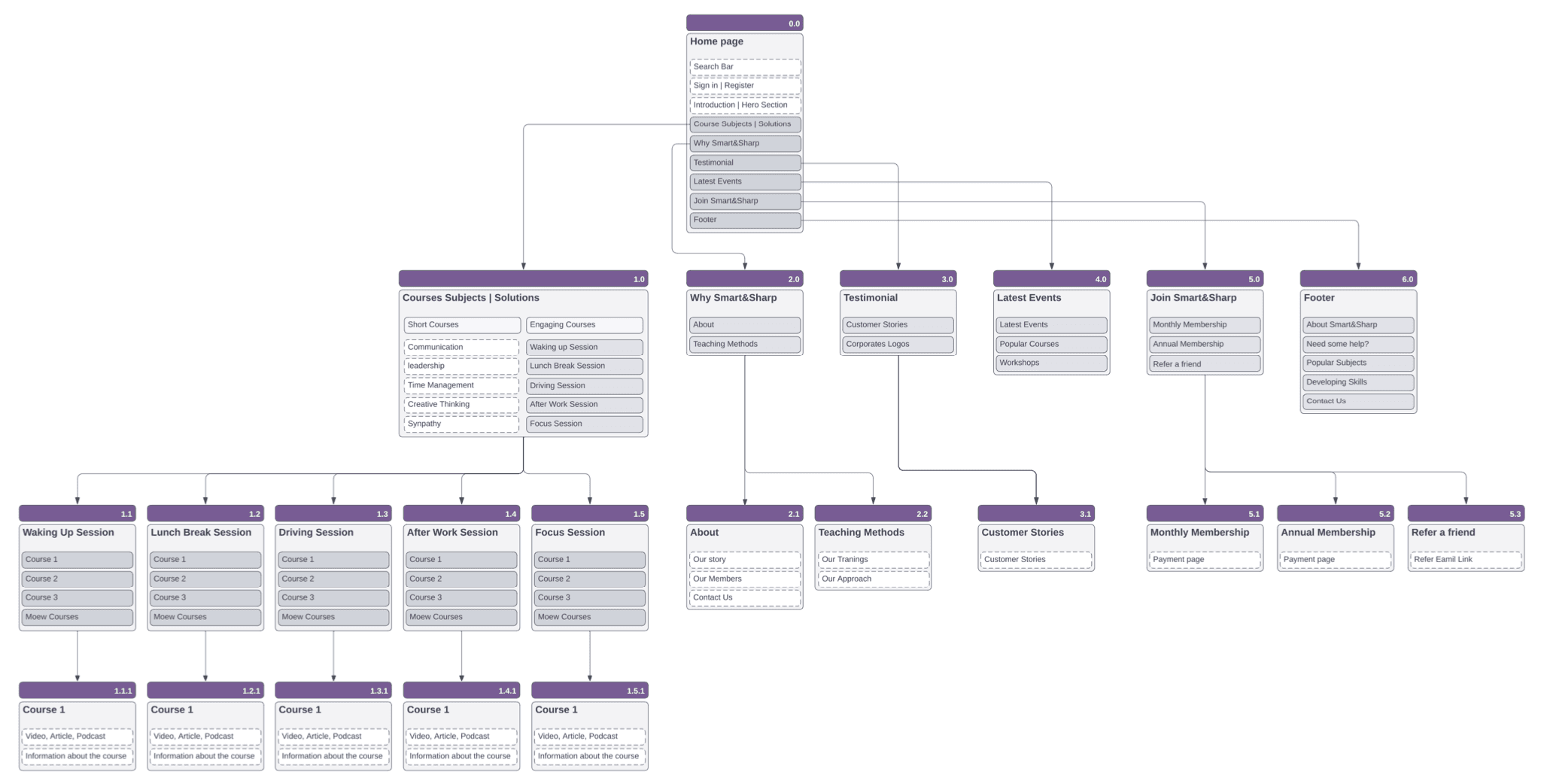
Wireframing process
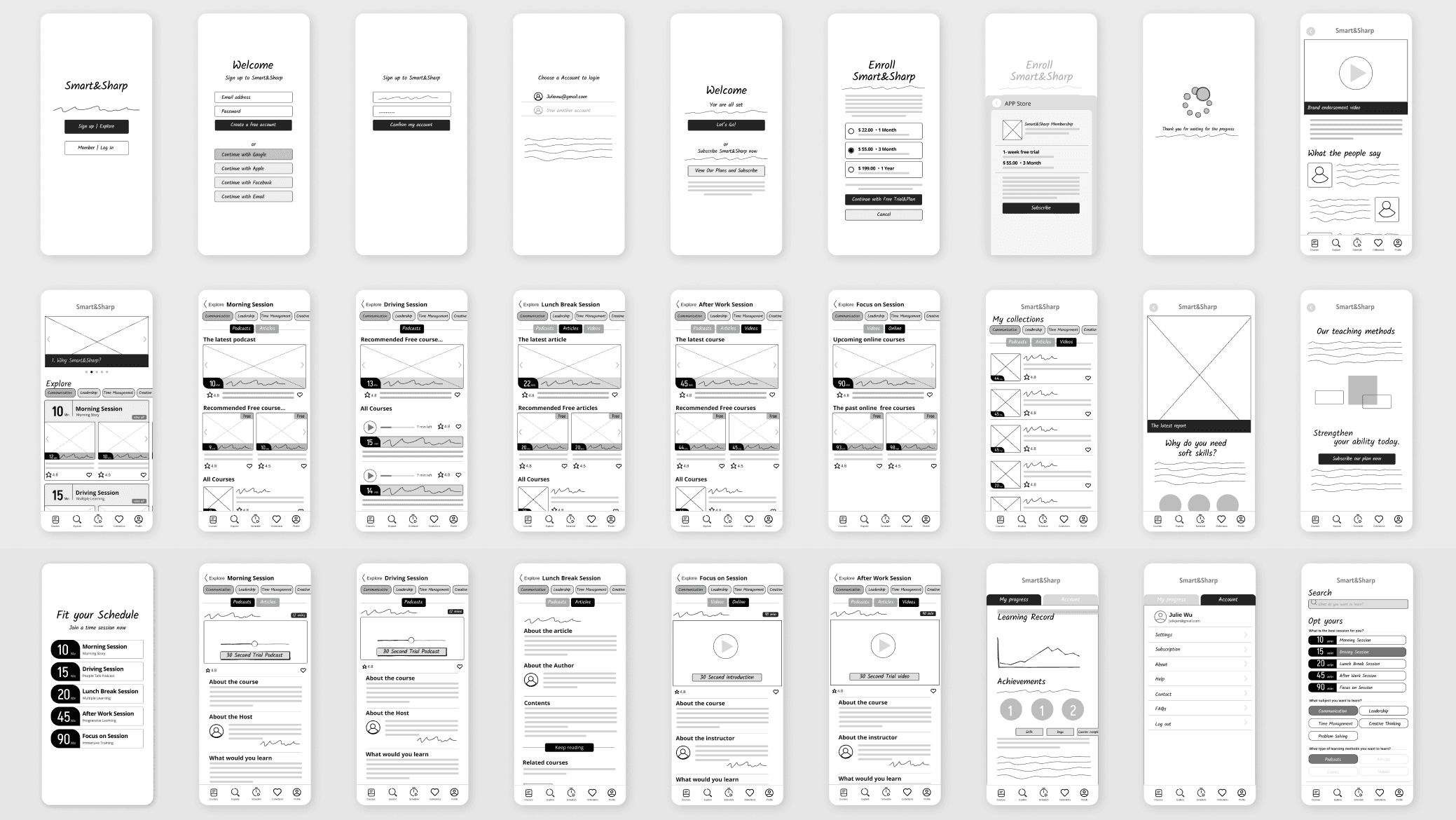
How it works?
1.Go through onboarding
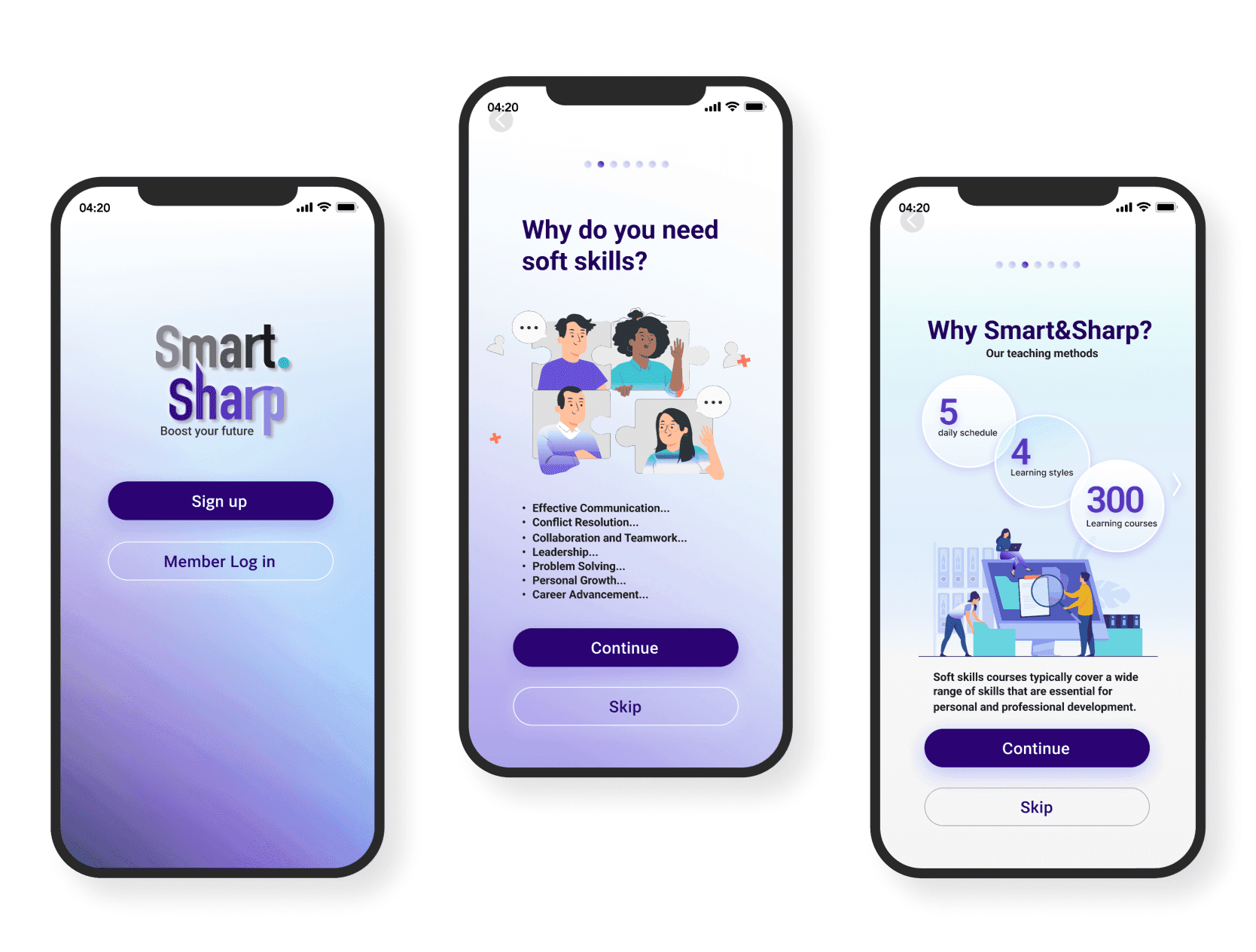
Select a preferred time perior or the situation which links to different courses
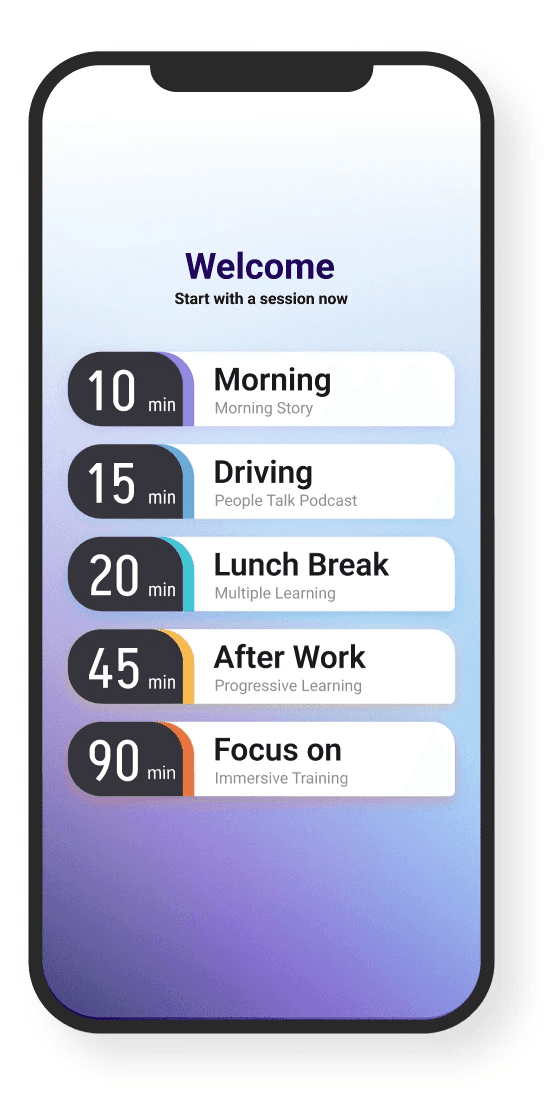

3-1 Choose a preferred topic
3-2 Pick a preferred learning method
4. Enjoy the lessons
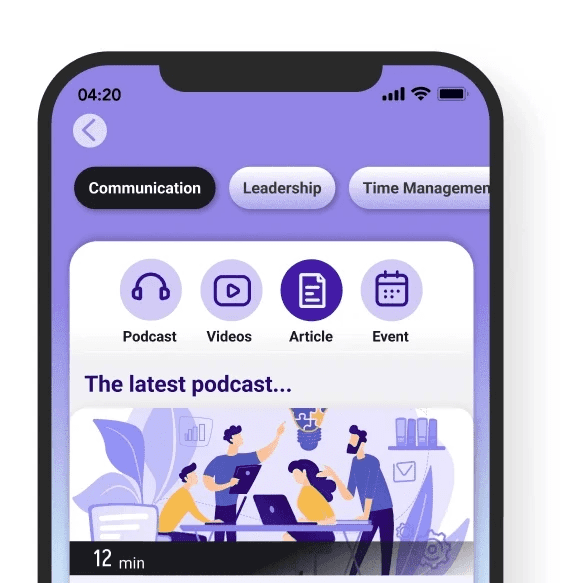
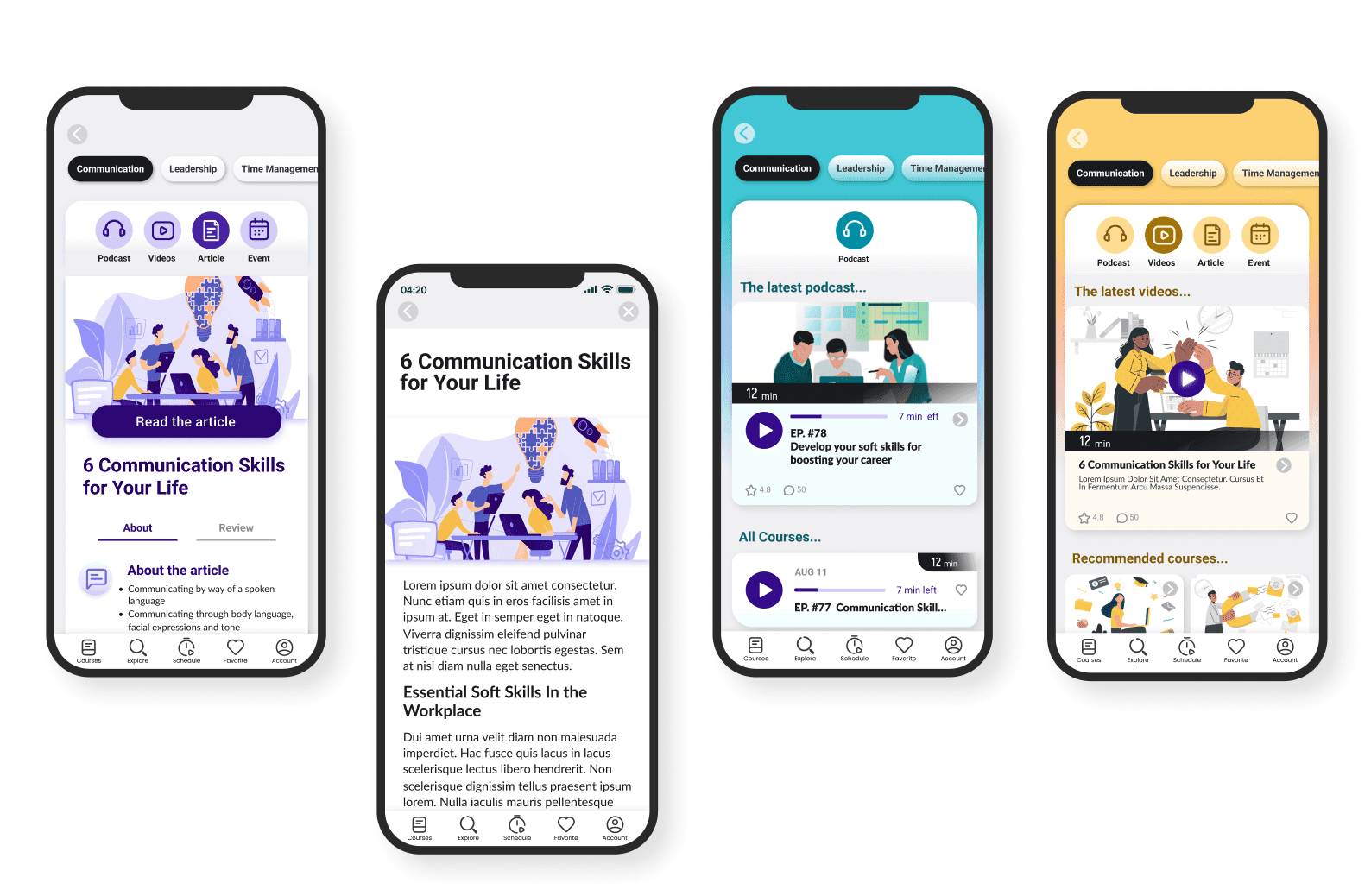
Learnings & takeaways: What I have learned
The main function goes to my plan.
Utilize more clear and succinct descriptions to guide users.
I need to improve User Flow continuously.
Understand people's attitudes towards learning.
During the usability test, participants primarily focus on the user flow and their experience of using the app. As a result, the feedback provided by users offers me detailed, specific, and comprehensive insights that enable me to make improvements to the product.
The app generally adheres to the planned approach in terms of features, user flow, and experiences. However, specific areas require improvement, such as using clear and concise labels for buttons to enhance user understanding. Additionally, some user flows and page arrangements need ongoing refinement for optimal usability.
UI Design
Make interactive visual designs that connect with users
